Cannabis-Infused Workouts: Myth or Magic for Enhancing Physical Endurance and Recovery?
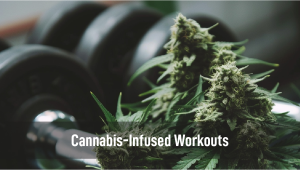
- 1. Unveiling the physiological dance: cannabis and exercise performance
- 2. Bridging myth with reality: cannabis and exercise recovery
- 3. Athletes and cannabis: trends, practices, and concerns
- 4. Dispelling misconceptions and addressing concerns: a critical eye
- 5. Individualized considerations: finding your balance
- 6. The road ahead: charting a course for future research
- 7. Conclusion: unveiling the true potential of cannabis-infused workouts
In recent years, the intersection of cannabis consumption and physical exercise has become a hot topic. Fueled by anecdotal reports and emerging products, the idea of cannabis-infused workouts has captured the imagination of fitness enthusiasts. Claims abound regarding its ability to enhance performance, boost motivation, and accelerate post-workout recovery. However, amidst this excitement, a critical perspective is necessary. Does scientific evidence support the claims surrounding cannabis and exercise?
This article embarks on an investigative journey, scrutinizing a diverse array of studies to unravel the true implications of cannabis-infused workouts on physical endurance and recovery. We'll delve into the physiological interplay between cannabis and exercise, explore the potential benefits and drawbacks for athletes of all levels, and critically evaluate the current state of scientific knowledge.
Unveiling the Physiological Dance: Cannabis and Exercise Performance
Understanding the physiological interplay between cannabis and exercise forms the foundation for evaluating its potential impact on performance. The human body is a complex system, and the introduction of cannabis adds another layer of complexity. Studies like the one by Bidwell et al. (2020) shed light on the intricate relationship between cannabis usage patterns and exercise behaviors. Through meticulous analysis of daily diaries, researchers observed how cannabis consumption might influence physical endurance and exercise engagement. This highlights the importance of individual differences in usage patterns and their potential influence on exercise outcomes.
In a study involving 98 participants (77 cannabis users, 21 non-users), individuals completed a baseline assessment and a 30-day daily diary tracking their cannabis use, diet, and exercise. Cannabis users were divided between using THC-dominant (n = 36) or CBD-containing (n = 41) flower products throughout the study. Results indicated no initial differences in BMI or exercise behavior between users and non-users, with no disparities in exercise frequency or duration observed over the 30-day period.
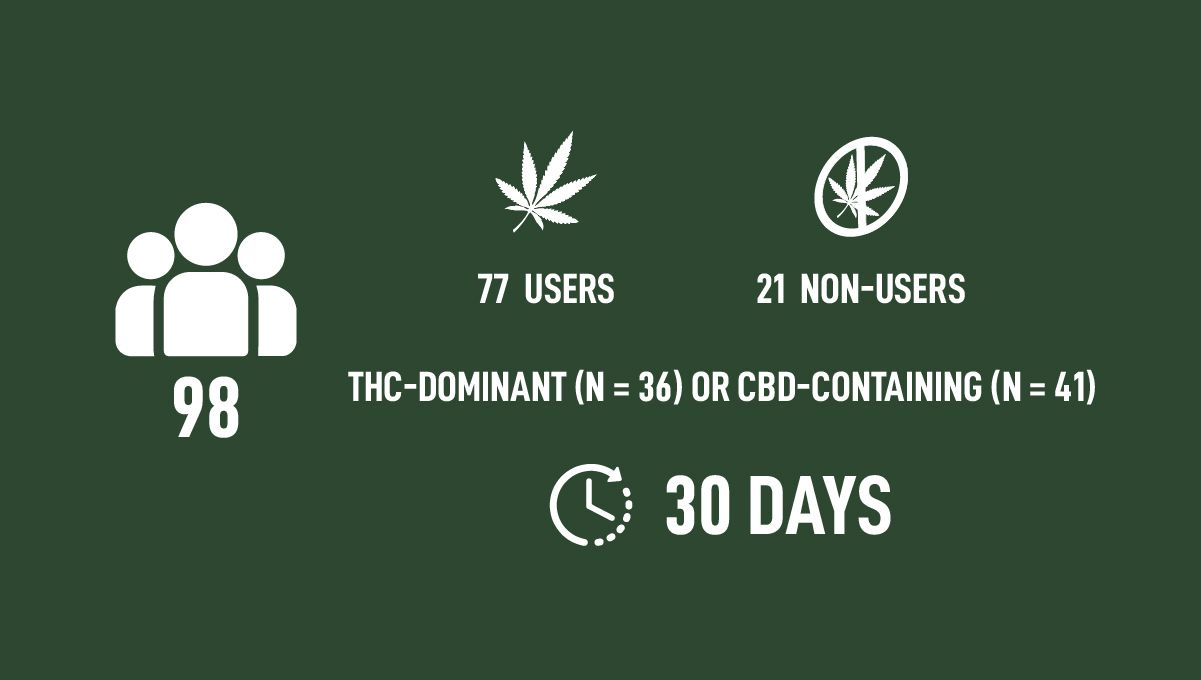
However, users exhibited marginally higher consumption of salty snacks and fast food daily compared to non-users, alongside increased fruit/vegetable intake and salty snack consumption on cannabis use days. Notably, the cannabinoid content of the product did not influence these patterns. The study suggests limited association between cannabis use and exercise but highlights the need for further investigation into its impact on dietary patterns and non-behavioral pathways to obesity and chronic diseases.
Further insight is gained by exploring the acute effects of cannabis on exercise experiences. The crossover study by Kennedy et al. (2016) investigated the subjective experience of aerobic exercise after consuming commercially available cannabis products. Their findings provide valuable insights into the nuanced dynamics between cannabis use and exercise participation. Did participants report heightened enjoyment? Increased focus? These subjective experiences paint a broader picture of how cannabis might influence the perception of exertion and overall workout satisfaction.
In a different study, a total of 122 habitual cannabis users, confirmed through urine drug tests, were recruited for the study from community settings and local club-level sports teams. Participants were required to be at least 19 years old and free from certain medical and psychiatric conditions. Each participant provided written consent, and the study adhered to ethical guidelines. The study involved an introductory visit and four experimental visits, where participants underwent aerobic capacity testing and exercise protocols under various conditions, including cannabis inhalation.

Cannabis inhalation was performed using different methods and products, with physiological responses and exercise performance measured. Results indicated that THC-containing cannabis inhalation led to alterations in physiological responses during both submaximal and maximal exercise, resulting in decreased exercise performance, whereas CBD-containing cannabis did not elicit such effects.
The study's findings suggest that the method of cannabis inhalation, particularly THC content, influences physiological responses to exercise and subsequent performance outcomes. This underscores the importance of considering cannabis use patterns and compositions when examining its effects on physical activity.
However, the picture isn't all rosy. Research by Roquet et al. (2013) throws a wrench into the idea of cannabis as a performance enhancer. Their investigation delved into the direct impact of THC-containing cannabis on cycling time trial performance. The results were clear – cannabis consumption actually impaired performance for some but can potentially promote or improve focus for a minority, which is and could be considered as performance enhancement. This compelling evidence challenges the prevailing notion and underscores the need to consider the specific type of cannabis and its dominant cannabinoids (THC, CBD).
Bridging Myth with Reality: Cannabis and Exercise Recovery
Efficient post-workout recovery is the cornerstone of optimal athletic performance. Cannabis has been touted as a potential facilitator of this process, but does science back it up? Systematic reviews offer a valuable tool for synthesizing existing research. The review conducted by Lanza and Teeter (2018) meticulously evaluated the existing literature to ascertain the impact of cannabis on exercise performance and recovery. By analyzing findings from diverse studies, this review provides a nuanced understanding of cannabis's efficacy in bolstering post-exercise recovery.
The potential of specific cannabis-derived compounds, particularly CBD, is a promising area of exploration. Research by Johnson et al. (2020) delved into the effects of CBD on recovery markers, including inflammation and muscle soreness. Their findings suggest that CBD might expedite recovery through its anti-inflammatory properties. This offers a glimmer of hope for athletes seeking natural adjuncts to optimize their post-workout recuperation.
A voluntary online questionnaire titled 'Cannabis and Exercise' was promoted through social media and flyers, collecting data from June to November 2022. Participants had to be over 18, cannabis users, and engaged in regular exercise. The survey covered cannabis use, exercise habits, recovery methods, and demographics, with anonymity ensured. The study was approved by the Kent State University Institutional Review Board. Utilizing multiple-question formats, the questionnaire delved into cannabis habits, exercise habits, and recovery methods. CBD and THC usage details were gathered, along with exercise frequency, intensity, and preferred modalities. Statistical analysis was conducted using SPSS, with significance set at p ≤ 0.05.
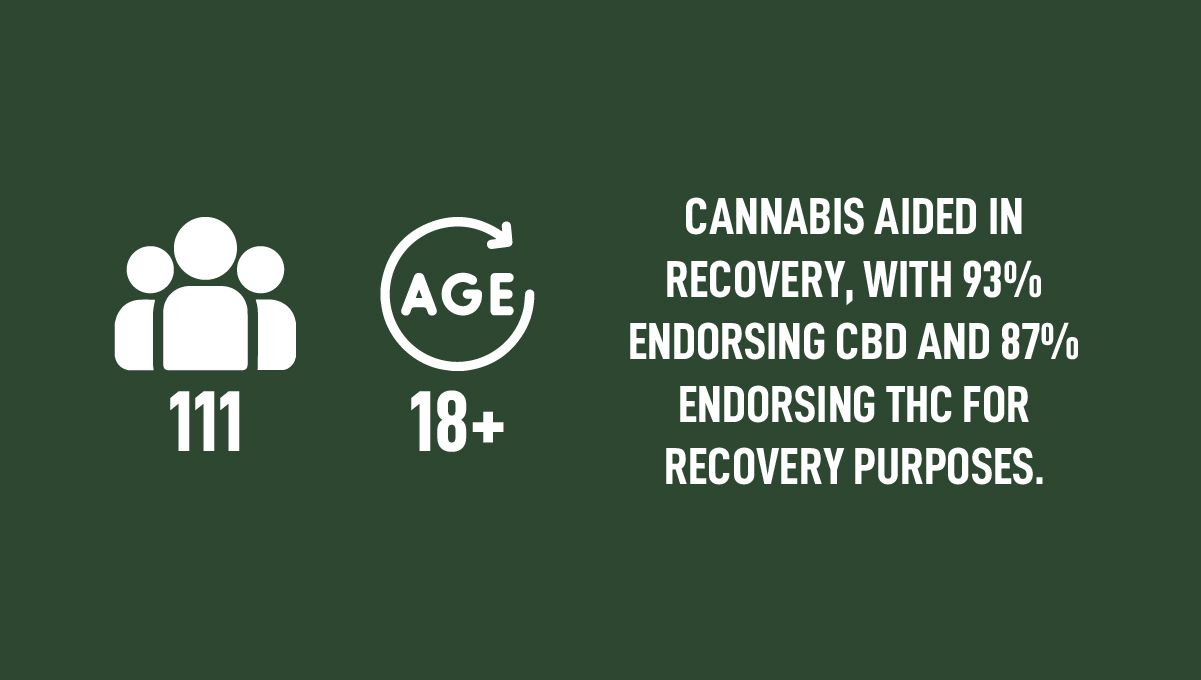
A total of 111 participants completed the survey, all reporting regular exercise and cannabis use. Women comprised 59%, men 39%, and non-binary individuals 2%. Most participants were Caucasian, with diverse educational backgrounds and income levels. The majority of participants reported regular aerobic (85%) and resistance (85%) exercise, with many engaging in both modalities. CBD and THC users showed differences in exercise intensity preferences, with CBD users often opting for higher intensities.
Participants commonly used edibles, vaping, and smoking for THC consumption, reporting various negative effects. Motives for CBD use primarily included sleep assistance and relaxation, while THC was primarily used to relax. Many participants believed cannabis aided in recovery, with 93% endorsing CBD and 87% endorsing THC for recovery purposes. Supplements used were similar among CBD and THC users, focusing on performance and recovery.

The study suggests that individuals actively use CBD and THC as part of their recovery from exercise. While more data are needed, the findings highlight the potential role of cannabis in pain management, inflammation, and sleep—key aspects of exercise recovery. However, more research is required to fully understand the complex interactions between cannabis compounds and the body's recovery processes. The optimal dosage, timing of consumption, and interaction with other recovery strategies all require further investigation.
Athletes and Cannabis: Trends, Practices, and Concerns
Understanding the prevalence of cannabis usage among athletes and its ramifications for exercise performance is crucial. Studies like the one by Lanza et al. (2018) explored the outcomes of exercise interventions among cannabis users and nonusers, particularly within older demographics. Their findings highlight the need for further research to understand the nuanced relationship between cannabis use, exercise behaviors, and health outcomes across diverse populations. Another critical area of exploration involves the association between cannabis use and exercise patterns among younger populations.

The study by Moore et al. (2018) examined this association specifically in adolescents engaging in muscle-building exercises. Understanding these patterns is vital for developing targeted interventions aimed at promoting healthy lifestyle habits and mitigating potential health risks among adolescents. Furthermore, the potential impact of cannabis use on specific training modalities deserves scrutiny. Does it affect strength training differently than endurance training? Does it influence yoga or other mindful movement practices? Future research endeavors should explore these questions to provide more specific guidance for athletes interested in incorporating cannabis into their routines.
Dispelling Misconceptions and Addressing Concerns: A Critical Eye
While claims espousing the benefits of cannabis-infused workouts abound, it's imperative to critically evaluate potential drawbacks and risks associated with cannabis use during exercise. Studies like the commentary by Ware and Gamsa (2018) provide a comprehensive analysis of existing research in this domain. By delineating gaps but also suggesting avenues for future research. This fosters a more nuanced understanding of the implications of cannabis use within exercise science. By embracing a rigorous scientific approach, we can move beyond anecdotal evidence and develop evidence-based recommendations.
Chronic cannabis consumption is another area requiring investigation. The longitudinal study by Tashkin et al. (2010) scrutinized the long-term ramifications of cannabis use on exercise capacity and cardiovascular health.

Their findings, while preliminary, suggest potential negative effects on lung function and exercise performance. This highlights the importance of considering long-term health consequences alongside potential short-term benefits, especially for athletes with pre-existing respiratory conditions.
Another critical concern involves the potential for impaired cognitive function during exercise under the influence of cannabis. THC, the primary psychoactive compound in cannabis, can affect reaction time, focus, and coordination. These impairments could translate to higher risks of accidents or injuries during exercise, particularly activities requiring precise motor skills. The legal landscape surrounding cannabis use adds another layer of complexity. With cannabis legalization gaining traction in many regions, athletes compete under a patchwork of regulations. The presence of THC in a drug test can lead to disqualification, creating a challenging situation for athletes who use cannabis recreationally or medicinally.
Individualized Considerations: Finding Your Balance
The impact of cannabis-infused workouts is likely a highly individualized experience. Factors like genetics, pre-existing health conditions, training goals, and the type and amount of cannabis consumed all play a role.

Individuals with conditions like chronic pain or anxiety might find that cannabis helps them manage symptoms and stay motivated to exercise. However, those with respiratory conditions or a history of mental health issues should be particularly cautious due to potential interactions with cannabis. Ultimately, the decision of whether to incorporate cannabis into a workout routine is a personal one. Open communication with a healthcare professional is crucial to weigh the potential benefits and risks in light of individual circumstances.
The Road Ahead: Charting a Course for Future Research
As the cannabis and exercise landscape continues to evolve, further research is essential to provide clearer guidance. Here are some key areas demanding exploration:
- Dosage and Timing: Determining the optimal dosage and timing of cannabis consumption for specific exercise goals is paramount. Research needs to explore how these factors influence performance, recovery, and subjective experiences.
- Strain Specificity: Not all cannabis is created equal. Investigating the effects of different cannabinoid profiles (THC dominant, CBD dominant, balanced ratios) on exercise outcomes is crucial.
- Long-Term Effects: Longitudinal studies are necessary to definitively understand the impact of chronic cannabis use on exercise performance, health outcomes, and potential interactions with other training strategies.
- Combined Strategies: Does cannabis offer synergistic benefits when combined with other recovery modalities like massage or cryotherapy? Future research should explore potential interactions and optimize recovery protocols.
Conclusion: Unveiling the True Potential of Cannabis-Infused Workouts
The current state of knowledge paints a complex picture regarding cannabis-infused workouts. While some studies suggest potential benefits for motivation, pain management, and recovery, others highlight potential drawbacks for performance and long-term health. Moving forward, a focus on rigorous, well-designed research is essential.

By embracing a scientific approach, we can move beyond anecdotal evidence and provide athletes and fitness enthusiasts with evidence-based recommendations. Ultimately, the goal is to empower individuals to make informed choices about incorporating cannabis into their exercise routines, maximizing potential benefits while minimizing risks. This journey into the world of cannabis-infused workouts has just begun. As research unveils this intricate relationship, we can chart a course toward optimizing athletic performance, recovery, and overall well-being.
External Resources
1. A daily diary investigation of cannabis use and its diet and exercise correlates
5. Exercise Intervention Outcomes with Cannabis Users and Nonusers Aged 60 and Older
6. Cannabis: Exercise performance and sport. A systematic review
8. Cannabis use for exercise recovery in trained individuals: a survey study
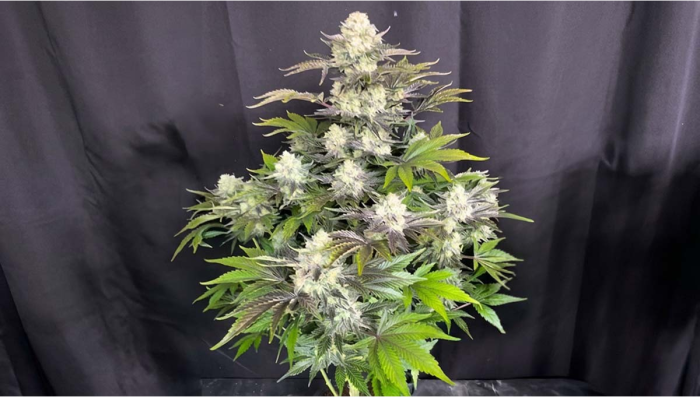










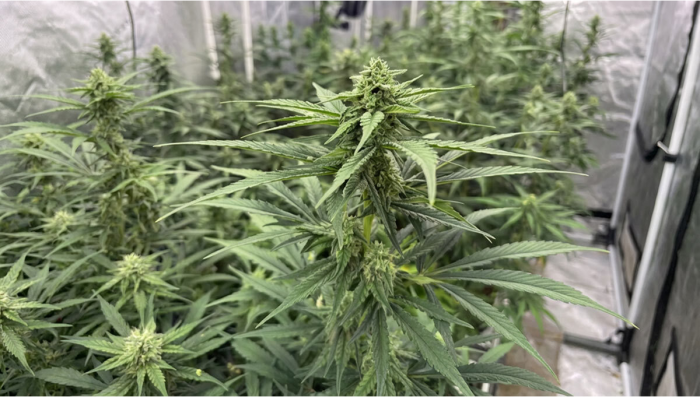
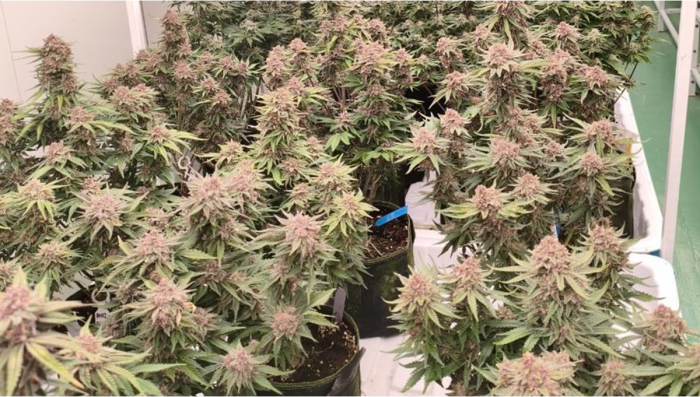
Comments